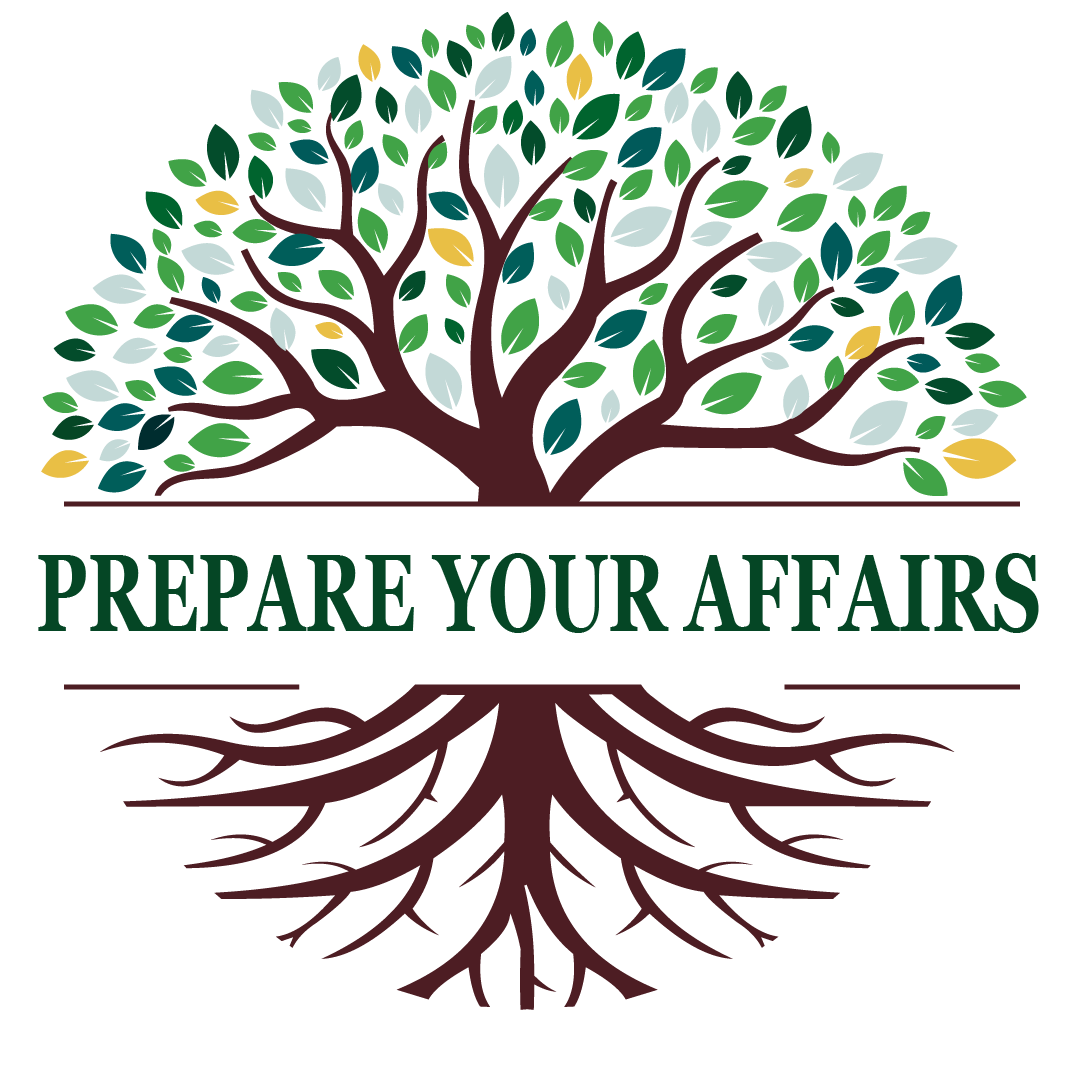Make this the Year to Act
One of the most popular songs to play on social media reels during the last couple weeks of 2022 has been Ashley Cooke’s “It’s Been a Year.” It’s a reflective song that contemplates the struggle and joy of humanity as we manage the “365 of record lows and record highs, loving and losing, fun and confusing, praying and shifting gears” that we all go through from day to day and week to week. Now that we’re into 2023, it’s appropriate to look forward to the year ahead. Our goal at Prepare Your Affairs is help you attain the peace of mind that comes with getting your end-of-life affairs in order. In this week’s tip, we offer some suggestions about how to go about accomplishing this task.
End-of-life planning can be intimidating on a couple levels. The most obvious difficulty is that it’s planning for a death that we don’t want and that is scary to think about. The other off-putting element is that it’s not something you can do in a couple hours. Proper planning takes time and thought, conversations with various family members, and requires the creation and signing of multiple legal documents.
The Taboo Topic
The easiest way to overcome the scary element of planning for death is finding prompts that might generate questions about mortality. Watching a show where death of a prominent character can generate a discussion. Also, the Death Deck is a party game that asks open-ended and multiple-choice questions in a way that creates a lively discussion amongst friends and family.
Death Cafés are another opportunity to learn how to feel more comfortable talking about death. They are meetings, often with strangers, in which the group discusses various elements of mortality. The first Death Café was held in England in 2011 by Jon Underwood and the concept has spread across the world. We have participated in a few and have found the various views of others fascinating and thought provoking. The meetings are held both in person and online. Everyone is welcome but nobody is required to share. If you want to tune in and just listen, you are welcome to do so.
Timing can also make talking about death easier or harder. We highly recommend learning to broach this taboo topic when all are healthy and well. It’s far easier to be honest and open when you expect that death is many years and decades away. Waiting until a terminal diagnosis makes for difficult discussions. If that’s where you’re at, however, please be bold and brave and have the conversation. Emotions will be raw but if all involved can be honest, you would find that deep and lasting connections can be made.
Planning Your Plans
Because end-of-life planning can seem like an overwhelming amount of work, we recommend breaking it down into chunks. For example, when we work with families we break the to-do list down into four pillars of preparation -- financial, legal, mental/emotional/spiritual, and practical. For example, in the financial category, ask yourself what needs to happen for my family to be financially stable if I pass away. Similarly, if you have a spouse or partner, you should be asking what needs to happen so I can be financially stable if my partner dies. You might create a budget like the one found in our FAManual that helps you identify immediate expenses, normal living expenses, and long-term expenses that a surviving spouse will be responsible for when a partner dies. Then look at all the sources of income and revenue that will be available to cover those expenses. If the two don’t balance, then you need to find a way to make up the difference, such as life insurance.
You can go through the same process as the other three pillars of preparation. If you have trouble knowing what needs should be addressed in your planning, simply close your eyes, and imagine that your partner has suddenly died and is no longer available to support you and your household. Run through a typical day or week and determine where you will have trouble on your own. That is a good place to start your planning.
As you go through this process, keep it simple and tackle one element at a time. Set a goal to accomplish tasks before certain dates. If you need help and support, feel free to download any of our free resources or read the tips from our various blog posts. We’re also available to help coach you through this process. We’re happy to host a free consultation with you to discuss how coaching might or might not be the best option.
